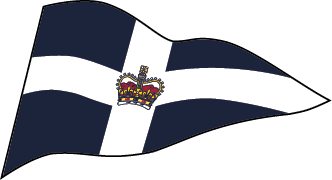The Alan Robinson race to Queenscliff sailed over the long weekend very much summed up the 2023-24 sailing season. The winds were light to non-existent and this meant that no boats finished at the West Channel Pile Light by the 1630hr time limit. From memory, most boats were still in the vicinity of RBYC 1 an hour after the start. The Australian Women’s Keelboat Regatta (AWKR) experienced similar conditions all weekend. The race officer did a great job getting the races in under such challenging conditions. Anecdotally at least, I cannot remember a season with such a predominance of light weather sailing. Throughout the RBYC season, the Festival of Sails and Port Lincoln regattas and the recent ORCV Apollo Bay Race the fleets encountered frustratingly light conditions. Moreover, when the wind decided to blow it came in with a vengeance. “Goldilocks” sailing days were the exception rather the norm.
As sailors, our enjoyment and safety depends on understanding, planning for and sailing in the prevailing weather conditions. Unfortunately for many of us on long ocean passages or blue water races our choices are limited and dictated by the Anemoi, the mythological Greek Gods of the four winds. All of us have our horror stories, no doubt embellished by a few knots and a couple of additional metres of sea state, of being caught out in some wild weather. While at a Club level many races have been won and lost on the how well the crew interpret the prevailing weather conditions. I say prevailing, because despite the incredible advances in weather forecasting, these models need to supplemented with what is actually happening around you. What are the cloud patterns suggesting? Is the barometer falling rapidly? What are the real time wind observations from weather stations around the Bay? All these can help you plan a safe and winning race strategy or cruise.
The ORCV is currently running a Weather for Sailors course, initially developed by Robin Hewitt, a past long standing RBYC member and owner and skipper of Yoko. The course, delivered on line, provides sailors with the knowledge and tools to understand the weather and plan their journeys accordingly. There are two modules covering 3-5 day coastal passages and extended and trans ocean passages. During the course, experienced offshore skipper Martin Vaughan, a name that will be familiar to Victorian offshore sailors, offered his five important weather lessons that maybe helpful when planning a journey. These were don’t just look at the wind forecasts but also take into account current; always have a Plan B; your 2IC (and crew) need to understand the weather; Expect the unexpected; and finally, how many times has this happened, don’t take crew with a deadline.
I can highly recommend this course and paraphrasing the Boy Scouts, an enjoyable day on the water racing, cruising or motor boating, is about being prepared.
Wishing you fair winds and following seas and remember no bananas at sea.
Vice Commodore
Peter Demura

